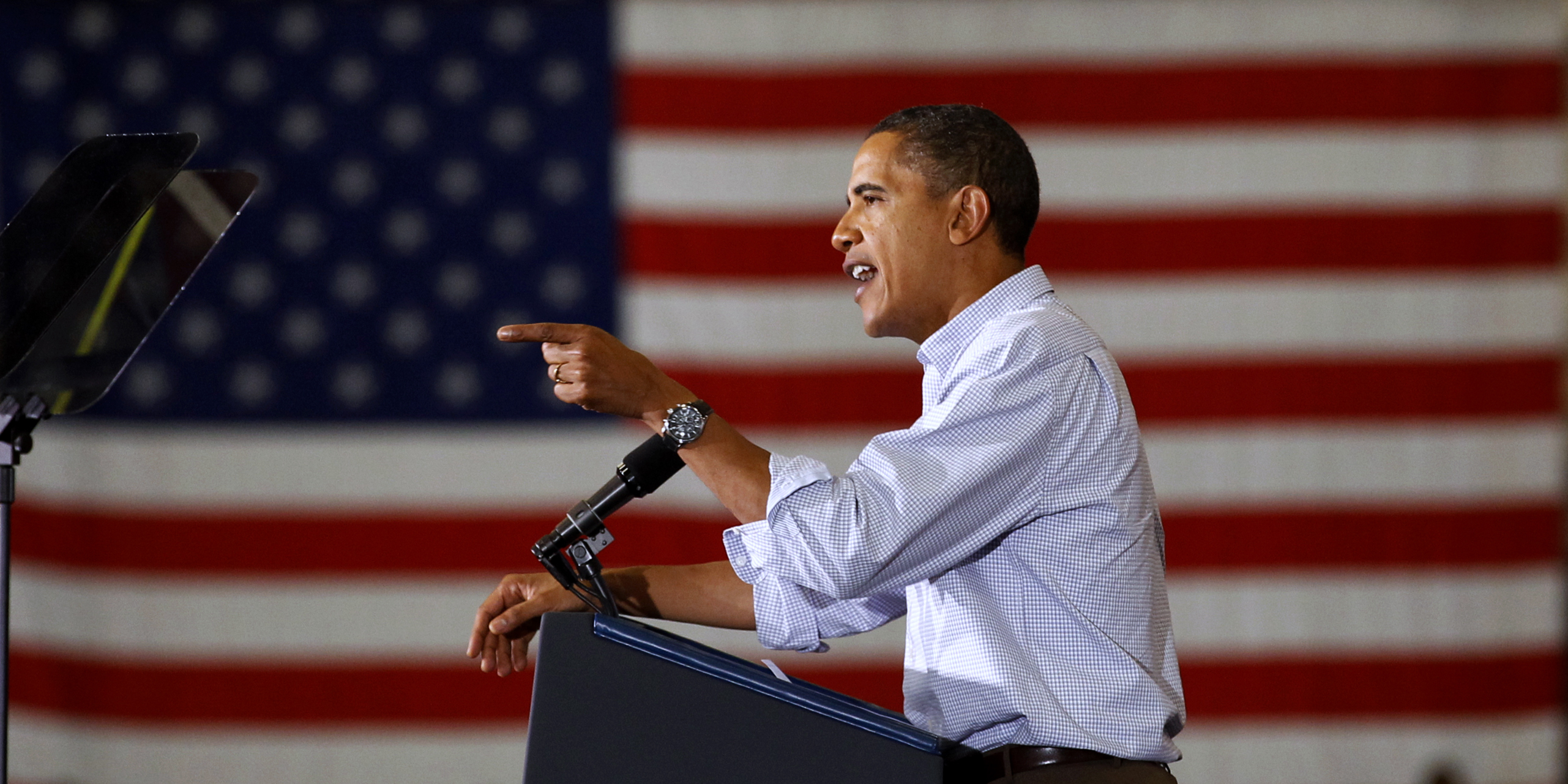American voters in Switzerland eye US election

Republicans are almost sure to win control of the United States House of Representatives on Tuesday, leaving overseas voters in Switzerland thrilled or fretful.
Count American Ed Flaherty among the former. The chairman of the Swiss branch of Republicans Abroad says his group is confident enough of big wins at the polls that a victory party is in order.
“This election is in some ways quite a surprise,” he told swissinfo.ch. “I didn’t expect Republicans could bounce back to the position they appear to be in come November 2 so quickly.”
All 435 seats in the House are up for grabs and independent observers say a midterm backlash will likely wallop controlling Democrats with net losses of as many as 60 seats, maybe even more. Republicans need a net gain of 39 seats for a majority. (Listen to audio.)
One-third of the Senate is also up for election. Forecasts for Republican gains there appear to be big but still modest enough to leave Democrats with a thin majority. If true, it will be the first time since the 1930s that only the House has flipped without the Senate.
“Since the Iraq War it’s been difficult to be a Republican in polite company,” Flaherty said. “We were almost irrelevant in 2008 with people caught up in [President Barack Obama’s message of] hope and change that we didn’t matter very much at all. That’s starting to change.”
Restoring sanity
That concerns Maya Samara, who leads the Swiss branch of Democrats Abroad. A House falling into Republican hands will have implications for Americans overseas everywhere, she says, not just those in Switzerland.
“It will mean no action, filibustering and blocking important legislation that people need,” she told swissinfo.ch. “It will be a pity to see inaction just for the sake of saying you want to stop government. That would be the biggest disappointment for Americans living everywhere.”
For the past few months, Samara, who has lived in Switzerland for ten years, has been holding voter registration drives with her fellow Democrats. Volunteers have been calling the “several thousand” members in Switzerland to remind them to mail in their ballots.
“Someone told me they took their ballot to a post office in Geneva and the clerk asked what all these big white envelopes were because she’d been seeing a lot of them,” Samara said. “That’s a good indication for me that a lot of Americans are voting from Switzerland. Our votes influence races in every state.”
Even so, barring one of the greatest political comebacks in the history of midterm elections, Democrats in Switzerland are unlikely to be toasting each other on Wednesday morning, when results become available with the nine-hour time change with the American west. Instead, a few days before the election they held rallies in Geneva and Zurich to “restore sanity”.
“We want a political debate run by people who aren’t crazy,” she said, referring to the Tea Party movement (see sidebar). “We need to get back to an evidence-based discussion and not let the loudest person in the room dominate it. We need to regroup and look ahead to presidential elections in 2012.”

More
Midterm elections
New ship same sea
So what happened? Democrats just two years ago rode a large wave of popular support to put Obama in office and soon after, seize real control of both the House and the Senate—events that were widely praised in Switzerland. On Tuesday they are facing defeats similar to 1994 when Republicans netted 54 more seats.
For Flaherty, the shift has less to do with who’s a Republican and who’s a Democrat and more to do with who’s an entrenched incumbent who needs the boot. It’s a vote against “big government, big deficits, big health care, and an invasion of privacy”, he said, a topic that puts Switzerland and big bank UBS at ground zero.
“The Internal Revenue Service crackdown on overseas bank accounts has had an adverse affect on the everyday American living overseas,” he said. “Most of the people here are not the ultra-wealthy Marc Riches of the world hiding their money. We are working class people with jobs and need a bank account. That’s a real issue for people.”
Samara isn’t so sure. She says the “time to clean house” line is a popular battle cry any time one party is looking to oust the other. Similarly, she doesn’t think the IRS and UBS have pushed independents and Democrats to vote Republican.
“It’s a symptom of hard economic times, with high unemployment, recessions and foreclosures,” she said. “These aren’t problems created by Democrats but a downturn that started with the last administration. People have short memories.”
More likely, she says, people who leaned left to vote for Obama in 2008 are now drifting back to the right.
Either way, no matter how the vote shakes out, the election ripples aren’t likely to rock Switzerland.
“Tuesday isn’t going to fix anything,” Flaherty said. “It may change the ship but not the circumstances.”
The Migration Office says there were 16,581 US citizens living in Switzerland as of the end of 2009. This number does not include those with dual Swiss-American citizenship.
Any American 18 years and older living overseas is allowed to vote in federal elections. Some states do not allow US citizens to cast ballots on state or local issues if they have never lived in the US.
The Tea Party is not a party but a movement largely within the Republican party that began to gain traction in 2009.
Tea Party members generally believe federal spending, the deficit and taxes should be dramatically slashed. They are frustrated with big government and feel Republicans have drifted away from core principles. They tend to be sceptical of policies created to battle global warming, are pro oil and gas exploration, and most want to repeal Obama’s health care bill.
In the 100-seat Senate, Democrats currently control 57 seats to Republicans 41, with two independents. They serve six-year terms. About 1/3 of the Senate is elected every two years.
The non-partisan Cook Political Report estimates Republicans will end up with 47 to 49 seats, with the Democrats having 51 to 53 seats. To gain control of the Senate, Republicans would have to hold all 18 of their own seats and then pick up another 10 of the 11 seats currently held by Democrats.
In the House of Representatives, a party needs 218 seats for a majority. Representatives are elected every two years.
Democrats currently control 255 seats versus 178 for Republicans. Two seats are vacant.
The Cook Political Report forecasts that 185 seats are tipped for Democrats, while 200 seats are more in Republican turf. Races for 50 seats are too close to call.

In compliance with the JTI standards
More: SWI swissinfo.ch certified by the Journalism Trust Initiative












You can find an overview of ongoing debates with our journalists here . Please join us!
If you want to start a conversation about a topic raised in this article or want to report factual errors, email us at english@swissinfo.ch.